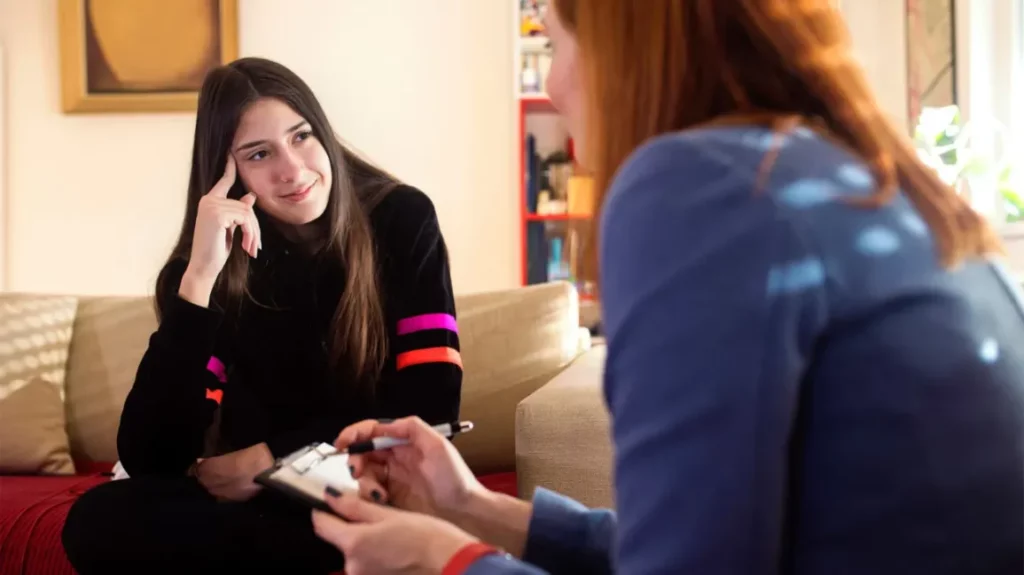Mental health is an essential aspect of our overall well-being, and finding the right therapist is a critical step in the journey toward self-discovery, healing, and growth. For many people, cultural background and shared experiences can play a significant role in establishing a strong therapeutic relationship. If you are seeking an Indian therapist near you, this guide is here to help. We will explore the importance of cultural understanding in therapy, provide tips on finding a qualified Indian therapist near me, and offer some key considerations to ensure you find the best professional match. Let’s embark on this journey together toward mental health and wellness.
Contents
What Is The Importance Of Cultural Compatibility In Therapy?
 A strong therapeutic relationship is the cornerstone of successful therapy. One aspect that can significantly influence this connection is cultural compatibility. Cultural compatibility in therapy is the understanding and appreciation of a client’s cultural background, values, beliefs, and experiences with the therapist. This understanding is essential for several reasons:
A strong therapeutic relationship is the cornerstone of successful therapy. One aspect that can significantly influence this connection is cultural compatibility. Cultural compatibility in therapy is the understanding and appreciation of a client’s cultural background, values, beliefs, and experiences with the therapist. This understanding is essential for several reasons:
- Culturally Informed Empathy
Therapists who share a cultural background with their clients can better empathize with their experiences and challenges, allowing for a deeper understanding of the issues faced by the client. This empathy can lead to more effective and tailored treatment approaches.
- Overcoming Language Barriers
Language can be a critical barrier in therapy. As nuances and expressions may not translate well across different languages. By working with a therapist who speaks your native language or understands your culture, you can communicate more effectively. And this feels better understood.
- Addressing Stigma and Stereotypes
Culturally compatible therapists are better equipped to navigate cultural stigmas and stereotypes that can affect mental health treatment. They can provide a safe space for clients to discuss these issues openly and work towards overcoming them.
- Incorporating Cultural Values and Beliefs
A culturally compatible therapist can integrate your values, beliefs, and traditions into the therapy process. This approach can make the treatment more meaningful, relevant, and effective for you.
- Understanding Family Dynamics
In many cultures, including Indian culture, family plays a vital role in an individual’s life. A therapist who understands these dynamics can consider the impact of family relationships on the client’s mental health. And incorporate this knowledge into treatment planning.
Overall, cultural compatibility in therapy can significantly improve the therapeutic relationship. This leads to more effective and personalized treatment. By seeking an Indian therapist near you, you can ensure that your mental health journey is rooted in a deep understanding and appreciation of your cultural background and experiences.
How Can I Find A Good Indian Therapist Near Me?
 Finding a good Indian therapist near you may seem daunting at first, but with the right approach and resources, you can locate a professional who meets your needs. Here are some steps to help you in your search:
Finding a good Indian therapist near you may seem daunting at first, but with the right approach and resources, you can locate a professional who meets your needs. Here are some steps to help you in your search:
Personal & Primary Care Physician Recommendations
Reach out to friends, family members, or colleagues who have sought therapy. And, make sure to ask if they can recommend any Indian therapists in the area. Personal recommendations can offer valuable insights into a therapist’s approach, communication style, and effectiveness. And, consult your primary care doctor or healthcare provider for therapist recommendations. They often collaborate with mental health professionals and can suggest someone who suits your specific needs.
Online Directories & Local Clinics
Utilize therapist directories available on websites like MantraCare, TherapyMantra, or the American Psychological Association. These platforms allow you to search for therapists based on location, specialization, and cultural background. On the other hand, you can contact mental health clinics and community centers in your area and inquire about Indian therapists they have on staff or can recommend. These organizations may have a diverse range of professionals to choose from.
Support Groups and Online Communities
Join mental health support groups or online communities that focus on Indian culture. Members in these groups may share their experiences and recommendations for therapists, providing valuable firsthand information.
Social Media
Follow mental health professionals or organizations that cater to Indian audiences on social media platforms like Facebook, Twitter, or Instagram. They may share resources, webinars, or online sessions that can help you find an Indian therapist near you.
Reach Out to Potential Therapists
Once you have a list of potential therapists, reach out to them to schedule an initial consultation or ask questions about their approach, experience, and qualifications. This interaction can help you gauge if they are the right fit for your needs.
By exploring these detailed options, you increase your chances of finding a good Indian therapist near you who can provide culturally sensitive and effective mental health care.
What Questions To Ask From Indian Therapists Near Me?
When searching for an Indian therapist near me, it’s crucial to ask the right questions. As this will ensure that they are a good fit for your needs. So, here are some essential questions that you must ask:
- What are your qualifications and credentials?
Ensure that the therapist has the necessary educational background, training, and licensure to practice in your region.
- How long have you been practicing therapy?
Asking about their experience can help you gauge their expertise. And also, familiarity with various therapeutic approaches.
- Do you have experience working with clients from an Indian background?
It’s essential to know if the therapist has experience working with Indian clients or understands the nuances of Indian culture. As this can impact the effectiveness of therapy.
- Do you have experience addressing my specific concerns or issues?
Ask if the therapist has experience working with clients who have similar concerns or issues to yours. Such as anxiety, depression, relationship problems, or trauma.
- How do you incorporate cultural factors into your therapy sessions?
Find out how the therapist integrates cultural understanding, values, and beliefs into their treatment approach. It will ensure that therapy is culturally sensitive and relevant.
- What is the duration, frequency, and format of therapy sessions?
Inquire about session length, how often you will meet, and whether the therapist offers in-person, remote, or a combination of both types of sessions.
- What is your fee structure, and do you accept insurance?
Understanding the therapist’s fees, payment options, and whether they accept your insurance plan can help you determine if their services are financially feasible for you.
- Can you provide any references or testimonials from previous clients?
Requesting references or testimonials can give you additional insights into the therapist’s effectiveness. Also, tell you how well they work with clients from an Indian background.
Asking these essential questions can help you make an informed decision and find an Indian therapist who understands your cultural background. And will address your specific needs, then support you on your mental health journey.
What Approaches Are Used By Indian Therapists?
Indian therapists, like other therapists, utilize a variety of therapeutic approaches. While the specific approach may vary based on the therapist’s training and the client’s requirements, some common approaches include:
Cognitive Behavioral Therapy (CBT)
CBT is a widely used approach that focuses on identifying and changing negative thought patterns and behaviors. This approach helps clients develop healthier coping strategies to deal with stress, anxiety, depression, and other mental health issues.
Psychodynamic Therapy
This approach explores the unconscious mind, early life experiences, and the impact of past relationships on present behavior. It aims to help clients gain insight into their emotional patterns. And develop healthier ways of relating to others and themselves.
Humanistic Therapy
Humanistic therapy emphasizes personal growth, self-acceptance, and the development of an authentic self. Approaches like person-centered therapy, Gestalt therapy, and existential therapy fall under this umbrella and focus on fostering empathy, understanding, and genuine communication between the therapist and the client.
Mindfulness-Based Therapies
Techniques like mindfulness-based cognitive therapy (MBCT) and mindfulness-based stress reduction (MBSR) combine elements of mindfulness and meditation with traditional therapeutic approaches. These methods teach clients to cultivate present-moment awareness and reduce negative thought patterns, stress, and emotional distress.
Family and Couples Therapy
Indian therapists may use family therapy or couples therapy to address relationship issues, communication problems, and the impact of family dynamics on individual mental health. These approaches often take into account the importance of family and relationships within Indian culture.
Traditional Indian Approaches
 Some therapists may incorporate traditional Indian healing practices, such as yoga, Ayurveda, or meditation, into their therapy sessions. These practices can complement conventional therapy approaches and provide additional cultural relevance to the treatment process.
Some therapists may incorporate traditional Indian healing practices, such as yoga, Ayurveda, or meditation, into their therapy sessions. These practices can complement conventional therapy approaches and provide additional cultural relevance to the treatment process.
The specific approach used by an Indian therapist will depend on their training, expertise, and the client’s individual needs and preferences. It’s essential to discuss the therapist’s approach during the initial consultation to ensure it aligns with your expectations and goals.
Conclusion
In conclusion, finding the right Indian therapist near you is a crucial step toward achieving mental health and well-being. By understanding the significance of cultural compatibility in therapy and employing various resources and strategies, you can locate a mental health professional who is best suited to your unique needs. Remember to ask essential questions during your initial consultation to ensure the best results. Your journey toward self-discovery, healing, and growth begins with the right support system in place. So, take your time and be proactive in finding a culturally sensitive and effective Indian therapist to guide you on this path.


